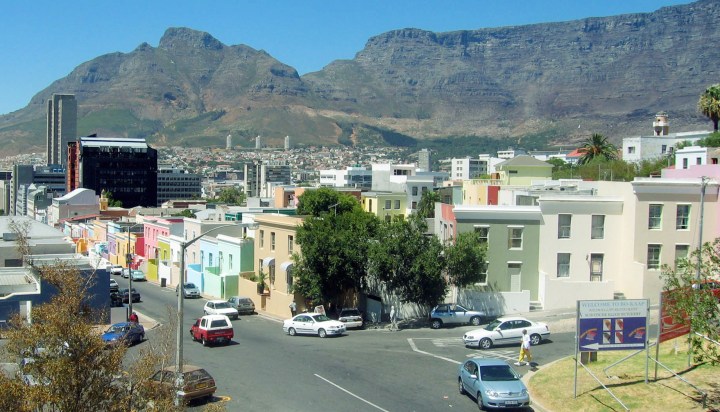Spatial Planning
Residents asked to comment on plans to address apartheid planning in Cape Town districts

The City of Cape Town wants residents, councillors and other affected parties to comment on its plans to address apartheid spatial planning in eight districts. The plan, according to the city, will bring people closer to the city centre and economic opportunities.
People living and working in eight districts in Cape Town have been called on to comment on the City of Cape Town’s revised spacial development plan.
The plan is aimed at undoing apartheid’s legacy, particularly its spatial planning and is guided by the City’s Municipal Spatial Development Framework (MSDF) which seeks to “achieve a reconfigured, inclusive spatial form of Cape Town”.
The MSDF was approved by the City Council in 2012. The MSDF is reviewed every five years and in 2018 it was revised and approved by the council.
The current district plans for Khayelitsha, Cape Flats, Helderberg, Blaauwberg, Tygerberg, Table Bay, Mitchells Plain and Greater Blue Downs which were approved in 2012 are being reviewed in order for them to be aligned with updated legislation and the MSDF.
“It’s about revisiting it (district plans) and seeing what works and what does not work,” said Marian Nieuwoudt, the mayoral committee member for spatial planning and environment.
District plans are 10-year plans meant to guide spatial development processes, land use management and transport considerations within specific districts.
But Axolile Notywala, the general secretary of the Social Justice Coalition, an organisation that works to better the lives of “all people, but especially those living in informal residences”, isn’t convinced that reviewing these plans will make a difference.
“We know that there are many pieces of land (in the city), that are sold to private developers who don’t consider social housing,” said Notywala.
“There is no political will to reintegrate people into the city,” Notywala told Daily Maverick.
Spatial planning
Because of the way the city is structured, poor people often live on the periphery of the city. This, of course, was deliberately designed during apartheid so that black and coloured people lived further from the city. Undoing this has proved difficult and complex.
In its draft documents, the City of Cape Town acknowledges that “Cape Town’s urban form was shaped by apartheid. This notorious policy (apartheid spatial planning) resulted in forced removals and the implementation of discriminatory laws”.
“The burden of this persistent and unsustainable urban form is born primarily by the poor who are forced to travel at great cost to access employment and a range of the other public and private goods,” reads the MSDF document.
“It’s about shortening the transport (distance) between working opportunities and living opportunities,” Nieuwoudt told Daily Maverick.
The 2015 Statistics SA report revealed that low-income households rely on public transport to travel and that they spend more than 20% of their household income on public transport.
Khayelitsha, Cape Flats, Helderberg, Blaauwberg, Tygerberg, Table Bay, Mitchells Plain and Greater Blue Downs are the eight districts where the districts’ plans are being reviewed.
The reason why these districts were chosen was “based on opportunity”. “We were looking at the opportunity for (economic) growth in these specific areas,” said Nieuwoudt.
In the MSDF document, the city writes that “the implication of Cape Town’s spatial, social and economic challenges is that it must place sustained job-generating economic growth at the heart of its spatial priorities”.
“There have been a number of plans for a number of years that have existed,” said Notywala.
“The fact that this (the MSDF) has been around since 2012 and nothing has happened tells you that there is no political will to make it happen,” added Notywala.
According to the MSDF document the vision is for “liveable, safe, resource-efficient cities and towns that are socially integrated, economically inclusive and globally competitive, where residents actively participate in urban life”.
“We can’t continue the current way of (doing things) where we endlessly develop houses everywhere and then afterwards think “where are these people going to have a job?” They need transport from one side of the city to the other side. We need an integrated, sustainable human development,” said Nieuwoudt.
For Notywala, the city’s spatial development plans are “just talk; it has been nothing but talk for a number of years”.
The review process
The review process starts on 1 May 2019 and could “could take up to a year, if not longer”. Affected stakeholders are urged to comment.
“It’s a marvellous opportunity for the city and citizens to communicate and engage,” said Nieuwoudt.
Nieuwoudt says that they will be launching “communication platforms” for stakeholders to comment on.
“We will open a WhatsApp group and we will open registration for interested and affected parties. Organisations and individuals can register with their sub-council and directly engage with them,” said Nieuwoudt.
The City of Cape Town believes that “the success of the review process will rely on the extent to which we manage to capture residents’ dreams for a future Cape Town”. DM

















